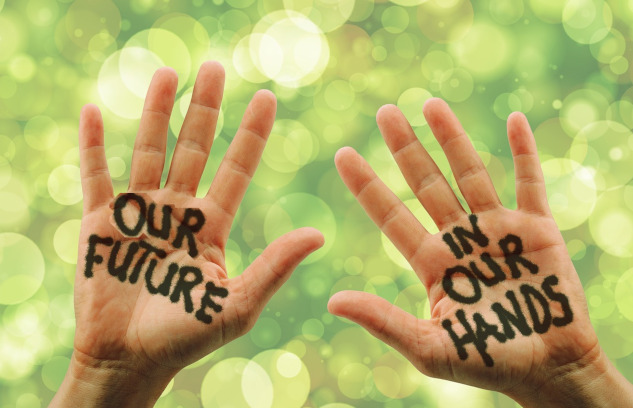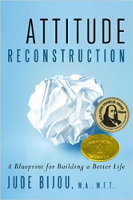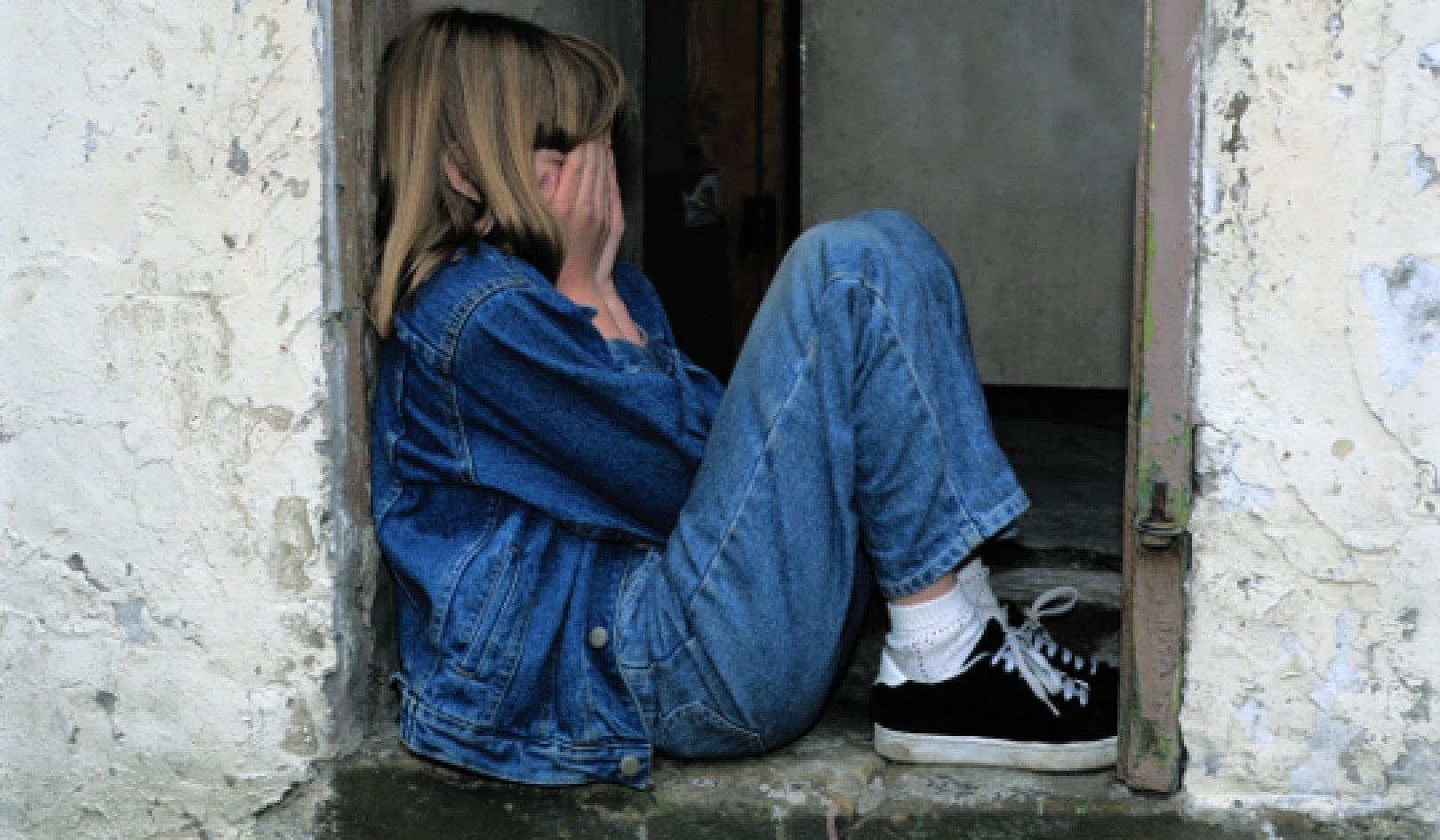
Image by Gerd Altmann
In this Article:
- What are the benefits of taking personal responsibility?
- Why and how do we resist personal responsibility?
- What happens when we avoid responsibility and remain passive?
- How does owning your emotions lead to personal growth?
- How can embracing responsibility improve relationships and self-esteem?
Taking Personal Responsibility: The Pros and Cons
by Jude Bijou.
Don't want to volunteer for a project that needs to be done? Making excuses why you didn't talk to your partner about the state of your finances? Won't make a phone call to schedule a appointment? Visit your in-laws?
Instead of automatically digging your heels in and thinking: "I don't want to... the outside world is making me do this," pause for a minute. This kind of thinking is an indicator of not accepting what is, of knowing you don't want to but "should." Like a child having a tantrum because she doesn't want to go to bed, you feel justified in stubbornly resisting. However, there is a price to pay, both within and for those around you.
To spare yourself and your world, switch your thinking and take personal responsibility. The truth is:
* I am responsible for what I think, feel, say, and do.
* I'm responsible for my experience.
* I'm responsible for my life.
* I can do this.
If you are complacent, I suggest you repeat one of the above "truths" at least a dozen times a day, minimum, AND relentlessly interrupt your old thoughts that justify taking the easy way out.
Stuck in "Don't Tell Me What To Do"?
When it seems as though others are telling you what to do or you're telling yourself how you should act and you start to feel resistance brewing, step out of your old thinking and ask yourself: What's the specific event or task? What do I know in my heart of hearts is best, is the high road, or will keep me aligned with my personal integrity?
You intuitively know what's right. It's an inner feeling. I suggest you listen and then follow through -- obey that guidance rather than defaulting to your old hopelessness, helplessness, and resistance. You'll be proud of yourself.
When you can't get a clear message about the proper course of action, ask yourself, "Is sadness, anger, or fear (or a combination of the three emotions) standing in my way?" Pinpoint the emotion and deal with it constructively. Then you'll be able to sort out what you need to do and how to do it.
Owning and Handling Our Emotions
It's truly amazing how strong the impulse is not to deal with our emotions physically and naturally. The cultural and family messages that shame us from expressing our emotions are pervasive. It can feel embarrassing, seem inconvenient in the moment, and indicate weakness. However, I believe that owning and handling our own emotions is the ultimate act of taking personal responsibility.
If you follow this simple formula of remembering that you are responsible for your own self, you'll become a different, lighter, freer person. You'll treat your customers with kindness and build a positive atmosphere. You'll know that taking out the trash without being asked, is the least you can do to help around the kitchen. You'll know when to call your aging parent and can do it with an open heart. You'll know when it's time to give an employee a raise. You'll know when to listen rather than argue. The possibilities are endless.
In terms of politics, I think it's healthier if we accept the way things currently are rather than shaking our heads and talking trash. From a stance of true acceptance, we can easily figure out how we can make a difference. Maybe it's by making a financial contribution to a cause we believe in. Maybe it's volunteering with a group that shares our positive viewpoints and values. Maybe it's simply voting!
If you begin to listen within and obey, you'll feel more joy, more love, and more peace. You'll get out of that selfish "me me me" mentality and experience the inner satisfaction of standing up and taking needed action in a constructive and loving way. Those around you will forever being in your debt.
Assertive vs. Passivity
When we stand up and lovingly assert ourselves, we feel joy. We feel virtuous and good about ourselves because we are obeying our inner wisdom. When we choose complacency, we don't create a positive inner feeling. Instead, we feel hopeless, helpless, and unmotivated to act. We feel we are unable to handle what we have been dealt.
Passivity stems from not listening to and obeying the direction given by our inner knowing. Feeling passive is not having the energy, drive, or confidence to do what we know within is best.
Being passive developed as a pattern for a really good reason -- we were avoiding feeling our emotions (especially sadness) and had to find some place to channel the sensations we were experiencing. Maybe dad was a tyrant and we felt like we had no choice but to be quiet and duck. Maybe our classmates laughed at us when we made a mistake and we decided being shy was safer.
But today, we're grown up and need to handle situations in an adult manner. It's time to shed our meekness and stand up and be counted. It's a choice, and yes it might take us out of our comfort zone. Don't sacrifice feelings of empowerment and confidence by not speaking up and/or taking action.
It's so much easier to put the problem on others by blaming and focusing on them. We revert to bitching and moaning about our circumstances and the people in it. However, all this outward focus keeps us from looking within to find what we can do to rectify a given situation.
This commonly happens with the couples I see in my private practice. They seem to have a PhD in finding the shortfalls in their partners rather than look at what they might be doing to keep feelings of connection and intimacy at bay.
It also happens with politics. We blame the politicians and sit on the sidelines, ragging about what a corrupt system we have and how we can't do anything about it.
Another pervasive way we skirt taking personal responsibility is by not owning our emotions and dealing with them constructively. Instead of acknowledging our fear and shivering and shaking out the agitation that's going on in our bodies and minds, we entertain overwhelm and anxiety. This puts us in a state of paralysis and puts confusion center stage.
Instead of having a good cry, we revert to feeling bad about ourselves and repeat the old messages that confirm that we're losers, unlovable, or unworthy. And instead of moving the anger out of our bodies, we go around being critical, judgmental, and frustrated with everyone and everything.
Wonderful Quotes about Taking Personal Responsibility
“Parents can only give good advice or put them on the right paths, but the final forming of a person's character lies in their own hands.” -- Anne Frank
“There is an expiry date on blaming your parents for steering you in the wrong direction; the moment you are old enough to take the wheel, responsibility lies with you.” -- J.K. Rowling
“In the long run, we shape our lives, and we shape ourselves. The process never ends until we die. And the choices we make are ultimately our own responsibility.” -- Eleanor Roosevelt
“Attack the evil that is within yourself, rather than attacking the evil that is in others.” -- Confucius
“If you could kick the person in the pants responsible for most of your trouble, you wouldn't sit for a month.” -- Theodore Roosevelt
“Manliness consists not in bluff, bravado or loneliness. It consists in daring to do the right thing and facing consequences whether it is in matters social, political or other. It consists in deeds not words.” -- Mahatma Gandhi
“This is your life. You are responsible for it. You will not live forever. Don't wait.” -- Natalie Goldberg
“The victim mindset dilutes the human potential. By not accepting personal responsibility for our circumstances, we greatly reduce our power to change them.” -- Steve Maraboli
“Every excuse I ever heard made perfect sense to the person who made it.” -- Dr. Daniel T. Drubin
“There’s not a chance we’ll reach our full potential until we stop blaming each other and start practicing personal accountability.” -- John Miller
“Taking personal accountability is a beautiful thing because it gives us complete control of our destinies.” -- Heather Schuck
©2024 by Jude Bijou, M.A., M.F.T.
All Rights Reserved.
Book by this Author: Attitude Reconstruction
Attitude Reconstruction: A Blueprint for Building a Better Life
by Jude Bijou, M.A., M.F.T.
 With practical tools and real-life examples, this book can help you stop settling for sadness, anger, and fear, and infuse your life with joy, love, and peace.
With practical tools and real-life examples, this book can help you stop settling for sadness, anger, and fear, and infuse your life with joy, love, and peace.
Jude Bijou's comprehensive blueprint will teach you to: cope with family members' unsolicited advice, cure indecision with your intuition, deal with fear by expressing it physically, create closeness by truly talking and listening, improve your social life, increase staff morale in just five minutes a day, handle sarcasm by visualizing it flying by, carve out more time for yourself by clarifying your priorities, ask for a raise and get it, stop fighting via two easy steps, cure kids' tantrums constructively. You can integrate Attitude Reconstruction into your daily routine, regardless of your spiritual path, cultural background, age, or education.
For more info and/or to order this book, click here. Also available as a Kindle edition.
About the Author

Jude Bijou is a licensed marriage and family therapist (MFT), an educator in Santa Barbara, California and the author of Attitude Reconstruction: A Blueprint for Building a Better Life.
In 1982, Jude launched a private psychotherapy practice and started working with individuals, couples, and groups. She also began teaching communication courses through Santa Barbara City College Adult Education.
Visit her website at AttitudeReconstruction.com/
Article Recap:
Taking personal responsibility involves owning one's thoughts, feelings, and actions, leading to personal growth, self-awareness, and improved relationships. The article explores the emotional challenges that prevent individuals from accepting responsibility and highlights the benefits of asserting oneself in daily life. By addressing emotions constructively, individuals can break free from patterns of complacency and passivity. The pros and cons of taking responsibility are examined, showing how embracing this mindset fosters empowerment and a sense of control.





























